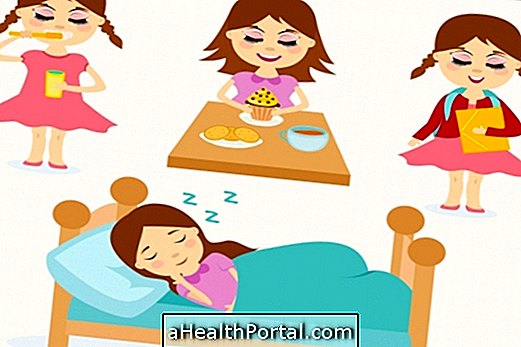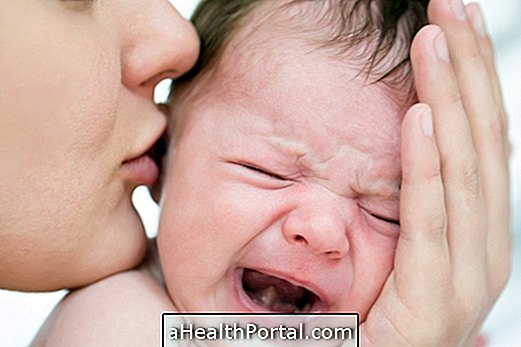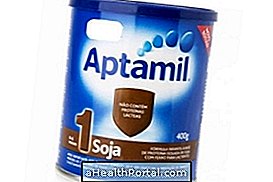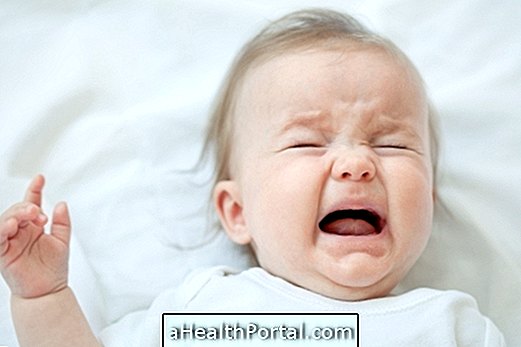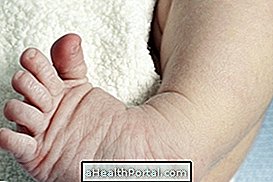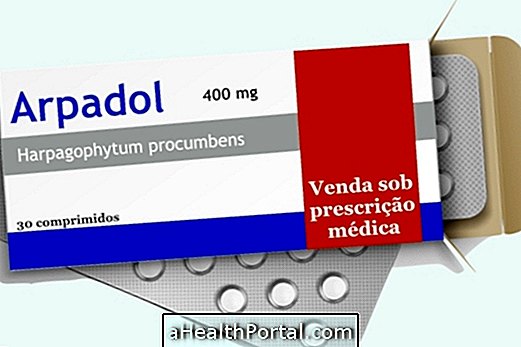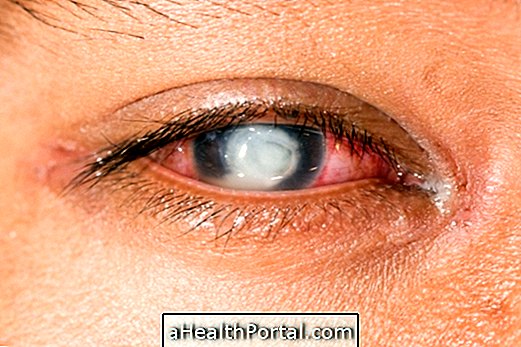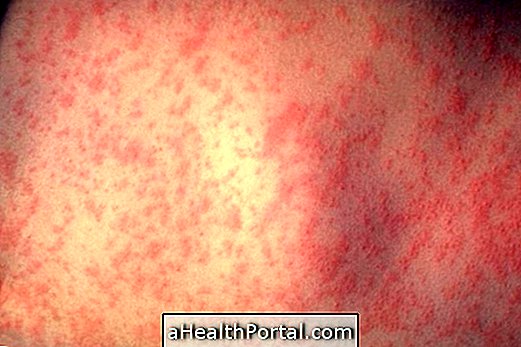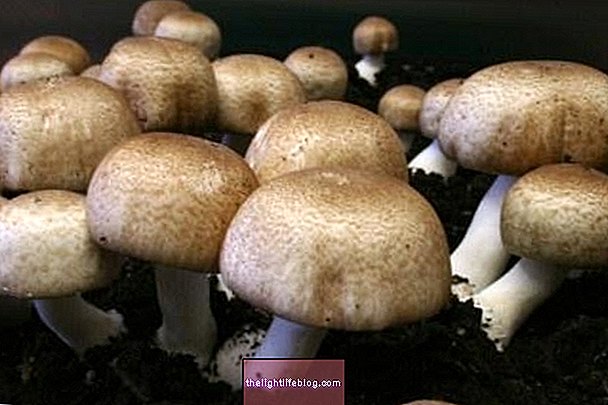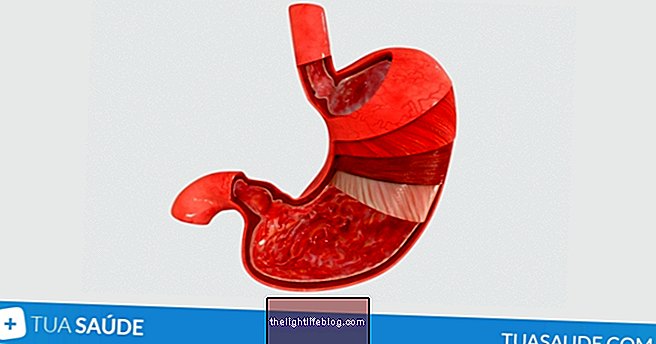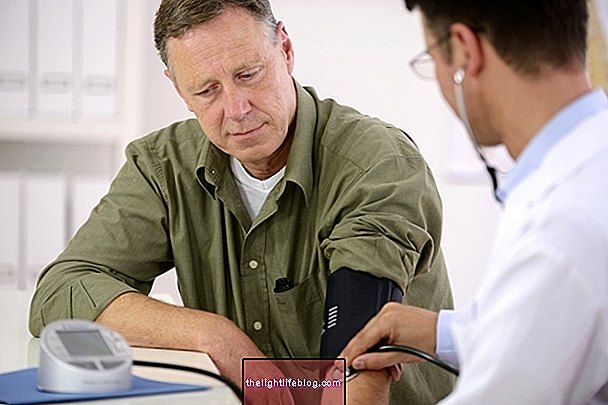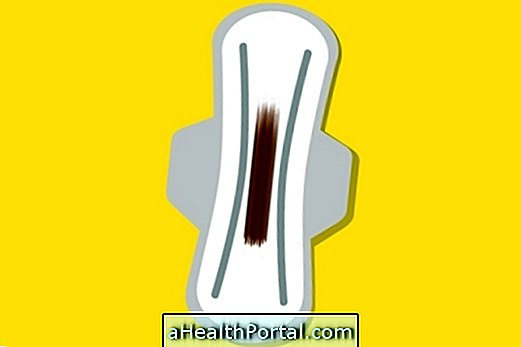Pertussis, also known as a long cough or whooping cough, is a respiratory disease caused by the bacterium Bordetella pertussis, which causes inflammation in the lungs and the airways. This disease occurs more often in infants less than 1 year of age and manifests differently than in older children. Learn more about pertussis.
Because babies have smaller airways, they are more likely to develop pneumonia and bleeding, so it is important to be aware of early symptoms such as persistent cough, shortness of breath, and vomiting. See the symptoms and possible complications of pertussis.
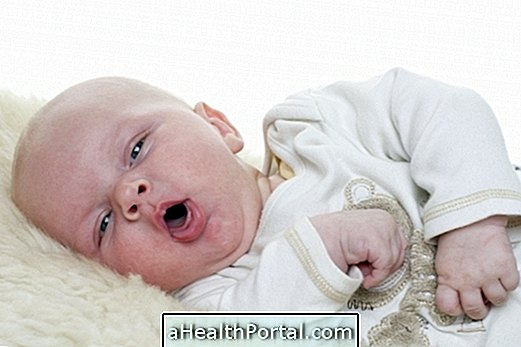
Main symptoms
The symptoms of whooping cough in the baby are usually:
- Persistent cough, especially at night, lasting 20 to 30 seconds;
- Coriza;
- Noises between coughing crises;
- Bluish coloring on the baby's lips and nails at coughing times.
In addition, there may be a fever and after the crisis the baby can release a coarse catarrh and the cough can be so strong that it causes vomiting. Also learn what to do when your baby is coughing.
As soon as the first symptoms appear, it is important to take the baby to the pediatrician as soon as possible so that the diagnosis and treatment can be made. Usually the doctor can arrive at the diagnosis of whooping cough only by observing the symptoms and the clinical history told by the caregiver of the children, but to clarify doubts, the doctor can request the collection of nasal or saliva secretion. The collected material is sent to the laboratory for analysis and identification of the causative agent of the disease.
How is the treatment done?
The treatment of whooping cough in the baby is done with the use of antibiotics according to the age of the baby and the pediatrician's orientation. In infants less than 1 month of age, the most recommended antibiotic is Azithromycin, while in older children the use of Erythromycin or Clarithromycin, for example, is recommended.
Another treatment option, depending on the characteristics of the bacteria, is the use of the combination of Sulfamethoxazole and Trimethoprim, however these antibiotics are not recommended for infants less than 2 months of age.
How to prevent pertussis in the baby
The prevention of whooping cough is done through vaccination, which is done in four doses, the first dose being at 2 months of age. Babies with incomplete vaccination should not stay close to people with a cough, especially before 6 months of age, as their immune system is not yet ready for this type of infection.
It is also important that from the age of 4 years the vaccine booster is taken every 10 years, so that the person is protected against infection. See what the diphtheria, tetanus and pertussis vaccine is for.
